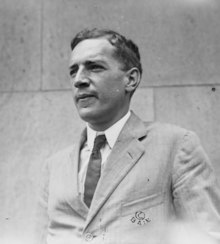
Upton Sinclair
We found 5 free papers on Upton Sinclair
Essay Examples
Overview
Upton Sinclair and Life
Upton Sinclair
The Gilded Age was a time in history where, as the name gilded suggest where something is plated with gold, on the outside the time looked amazing but in reality it was rotten. In short, the Gilded Age was a period of great industrialization and technological advances, but also of inequality and maltreat of people….
The Jungle by Upton Sinclair
Upton Sinclair
Jennifer Barry The “American Dream” In the 1900’s many immigrants were heading to America to live the American Dream. They soon came to realize that there is no American Dream, just long hours at work and poor living conditions. In the book “The Jungle” by Upton Sinclair we see this first hand through Jurgis and…
Jungle By Upton Sinclair
Upton Sinclair
A French philosopher once said that the greatest tyranny of democracy was whenthe minority ruled the majority. Upton Sinclairs The Jungle gives the readera great example of exactly this. A man who earns his living honestly and throughhard work will always be trapped in poverty, but a man who earns his livingthrough lies and cheating…
Upton Sinclairs The Jungle
Upton Sinclair
Upton Sinclair’s The Jungle tells the story of Jurgis Rudkus, a Lithuanian immigrant, and his family, who relocate to the United States during the Industrial Revolution. Unfortunately, they are unprepared for the changes in the workplace and society. Jurgis experiences numerous social injustices, which ultimately highlight the book’s theme: advocating for socialism as a better…
Upton Sinclair`s The Flivver King
The New Deal
Upton Sinclair
The Great Depression in of 1929 still remains in the world’s memory as one of the most devastating events not only in the United States Economy. Its echoing impact around the world challenged economic liberalism and gave rise to Keynesian economics. Upton Sinclair, in his book The Flivver King, points out that the Great…
| born | September 20, 1878, Baltimore, MD |
|---|---|
| died | November 25, 1968, Bound Brook, NJ |
| description | Upton Beall Sinclair Jr. was an American writer, political activist and the 1934 Democratic Party nominee for Governor of California who wrote nearly 100 books and other works in several genres. |
| books | The Jungle 1905, Oil! 1926, Dragon's Teeth 1942 |
| education | Columbia University, The City College of New York |
| movies | There Will Be Blood 2007, The Jungle 19 14, ¡Que viva Mexico! 1979 |
| information | Short biography of Upton SinclairUpton Beall Sinclair, Jr. (September 20, 1878 – November 25, 1968) was an American author and socialist who wrote nearly 100 books and other works across a number of genres. Sinclair’s work was well known and popular in the first half of the 20th century, and he won the Pulitzer Prize for Fiction in 1943. He played a significant role in the development of the American left, writing dozens of fiction and non-fiction books on political, social, and economic issues. Much of his work was based on the American working class and labor movement. Early life Sinclair was born in Baltimore, Maryland, on September 20, 1878. His father, Upton Beall Sinclair, Sr., was a liquor salesman; his mother, Priscilla Harden, was a schoolteacher. His parents were of Scottish and English ancestry. He had an older brother, Frederick, and a younger sister, Helen. Sinclair’s family lived in poverty for much of his childhood. His father’s alcoholism and financial problems caused Sinclair’s parents to divorce when he was 15 years old. His mother subsequently married an abusive man, Edmund Montgomery. Sinclair’s stepfather died in a train accident when Sinclair was 17 years old.Sinclair began working at age 10 to help support his family. He worked in a cannery, a meatpacking plant, and a factory that made hats. He also worked as a reporter for a local newspaper, the New York Journal. Sinclair’s first published article appeared in that newspaper when he was 13 years old. Sinclair attended City College of New York (CCNY) for one semester before dropping out to support himself financially. He then moved to Princeton, New Jersey, where he worked as a journalist for the Princeton Packet. While in Princeton, Sinclair began writing fiction. He published his first novel, Springtime and Harvest, in 1901.CareerSinclair’s first great success came with the publication of The Jungle in 1906. The novel exposed the conditions of the meatpacking industry in the United States to the American public. The Jungle was a best-seller, and Sinclair used the money he earned from the book to fund the Socialist newspaper, The Appeal to Reason. The newspaper had a circulation of 750,000, making it the largest Socialist newspaper in the country. In 1915, Sinclair ran for office in California on the Socialist ticket. He was defeated, but he continued to speak out on behalf of Socialist causes. He also wrote several more novels, including King Coal (1917), Oil! (1927), and Dragon’s Teeth (1942).In the 1930s, Sinclair became increasingly critical of the Soviet Union. He traveled to the USSR in 1931 and was unimpressed with what he saw. He wrote several books about his experiences, including I, Candidate for Governor: And How I Got Licked (1934) and The Goose-Step. General Essay Structure for this Topic
Important informationSpouse: Mary Elizabeth Hard Willis (m. 1961–1967), Mary Craig Sinclair (m. 1913–1961) Awards: Pulitzer Prize for Fiction |

